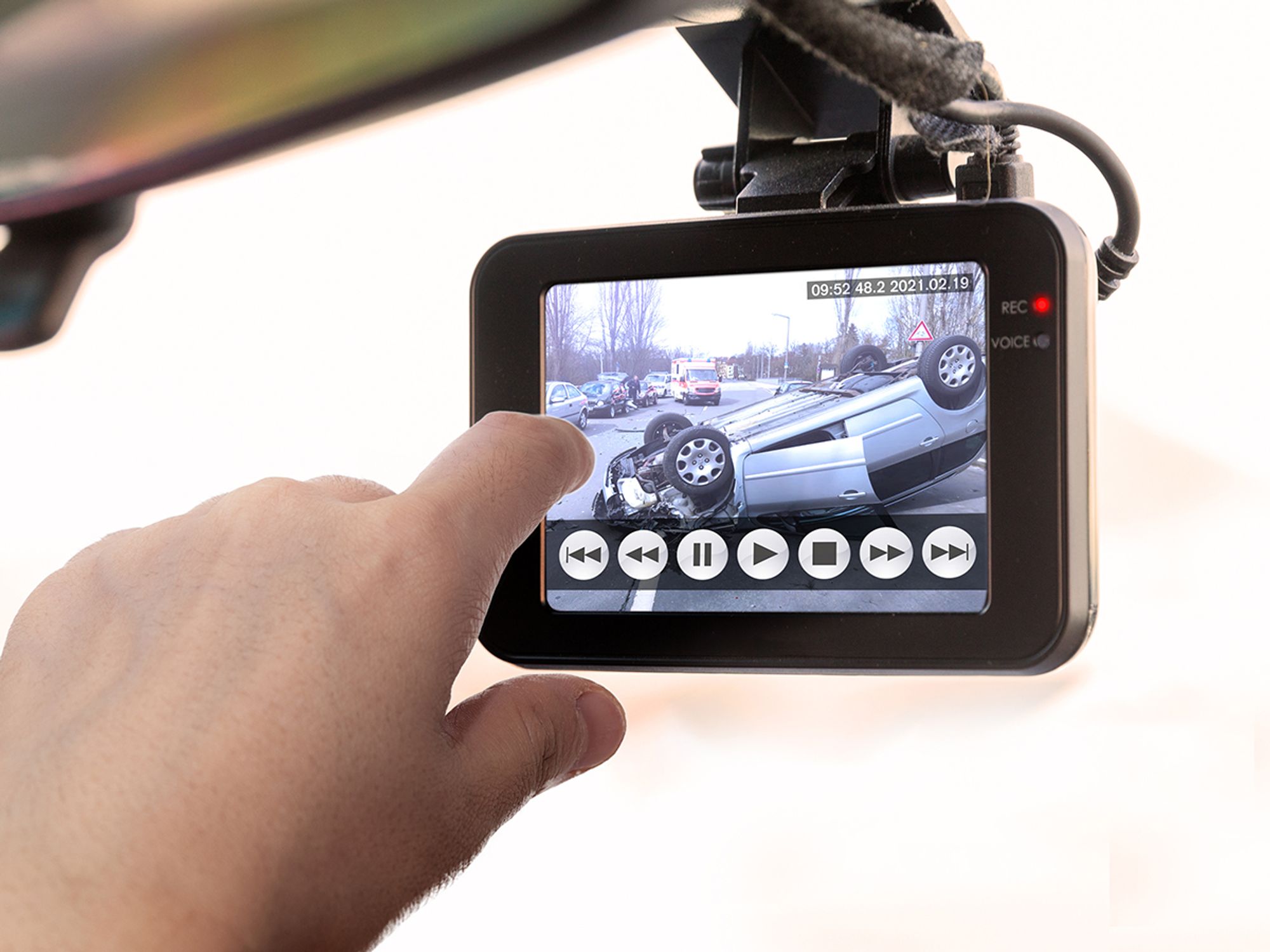Accidents and dashcams

- The data on the dashcam is considered evidence, and in the case of a serious accident, particularly one involving personal injury or death, a police officer will likely seize the memory card from the dashcam to preserve the evidence while a search warrant is obtained to view the video.
- In civil litigation, a plaintiff’s attorney would routinely seek the dashcam data through a discovery request, which, if contested by the defendant’s counsel, will likely be granted by the court.
A big area of concern is what happens to dashcam footage in an accident, especially if the carrier’s driver is at fault.
The rules? There are none. There are no laws or regulations when it comes to installing cameras in commercial vehicles (other than restriction on where they can be mounted), so it will come down to the carrier’s policies.
Traffic investigations
When it comes to accident footage captured by the dashcam, it can get complicated. The data on the camera will be considered evidence, and the police officer’s method for getting it will be the same as any other crash-scene evidence that the officer does not have direct access to or right to collect.
Example: In a serious crash with extensive property damage, personal injuries, or fatalities, it is likely that the police officer on the scene will seize the memory card from a dashcam to preserve the evidence while a search warrant is obtained. To view the actual video, however, the officer will need a search warrant.
- In the landmark case of Riley v. California, 573 U.S. 373 (June 25, 2014), the United States Supreme Court unanimously held that the warrantless search and seizure of the digital contents of a cell phone during an arrest is unconstitutional.
As a result of the Riley opinion, and due to the factual similarity of the dashcam to the cell phone, it has been extrapolated that an officer would need a search warrant to view the actual video from a dashcam. The individual states may have laws that address this question.
Naturally, a law enforcement officer can always request that a driver voluntarily show the dashcam recording. The officer, however, cannot force the driver to do this, it is entirely the driver’s choice. When faced with an officer’s request to view the dashcam video, the driver would be advised to follow company policy.
If a vehicle with a dashcam is impounded after an accident, the dashcam evidence will be secured within the vehicle. As a result, the officer will not need to seize the memory card from the dashcam but will be able to obtain a search warrant to view the dashcam video as part of the investigation.
Civil litigation
In civil litigation, unless voluntarily provided, the plaintiff’s attorneys would need to file a discovery request to get the camera data. A carrier’s attorney can attempt to shield the data, but a judge may still require the camera data to be provided to the plaintiff. When carriers have concerns in this area, the carrier should contact an attorney that specializes in motor carrier defense.
